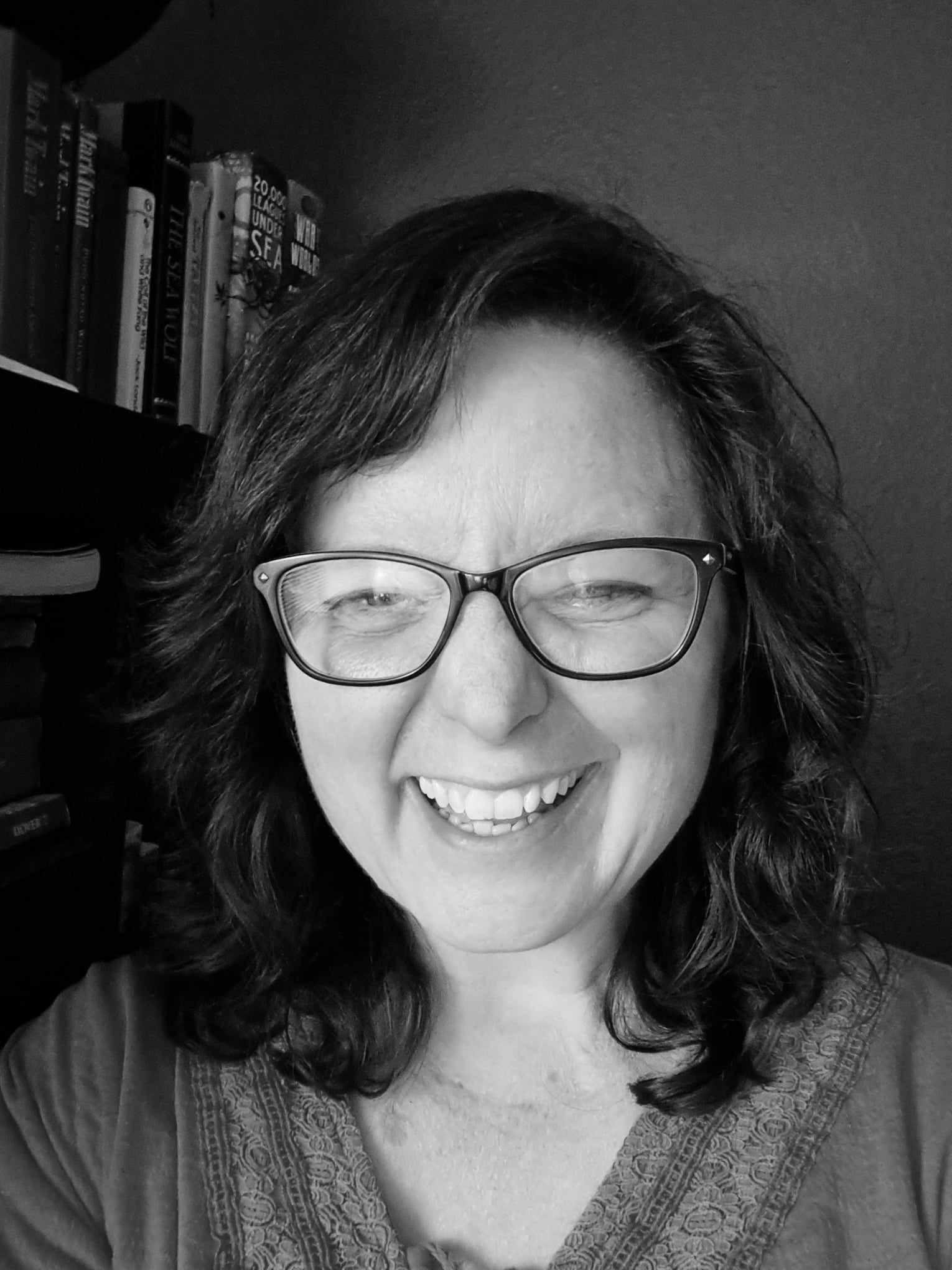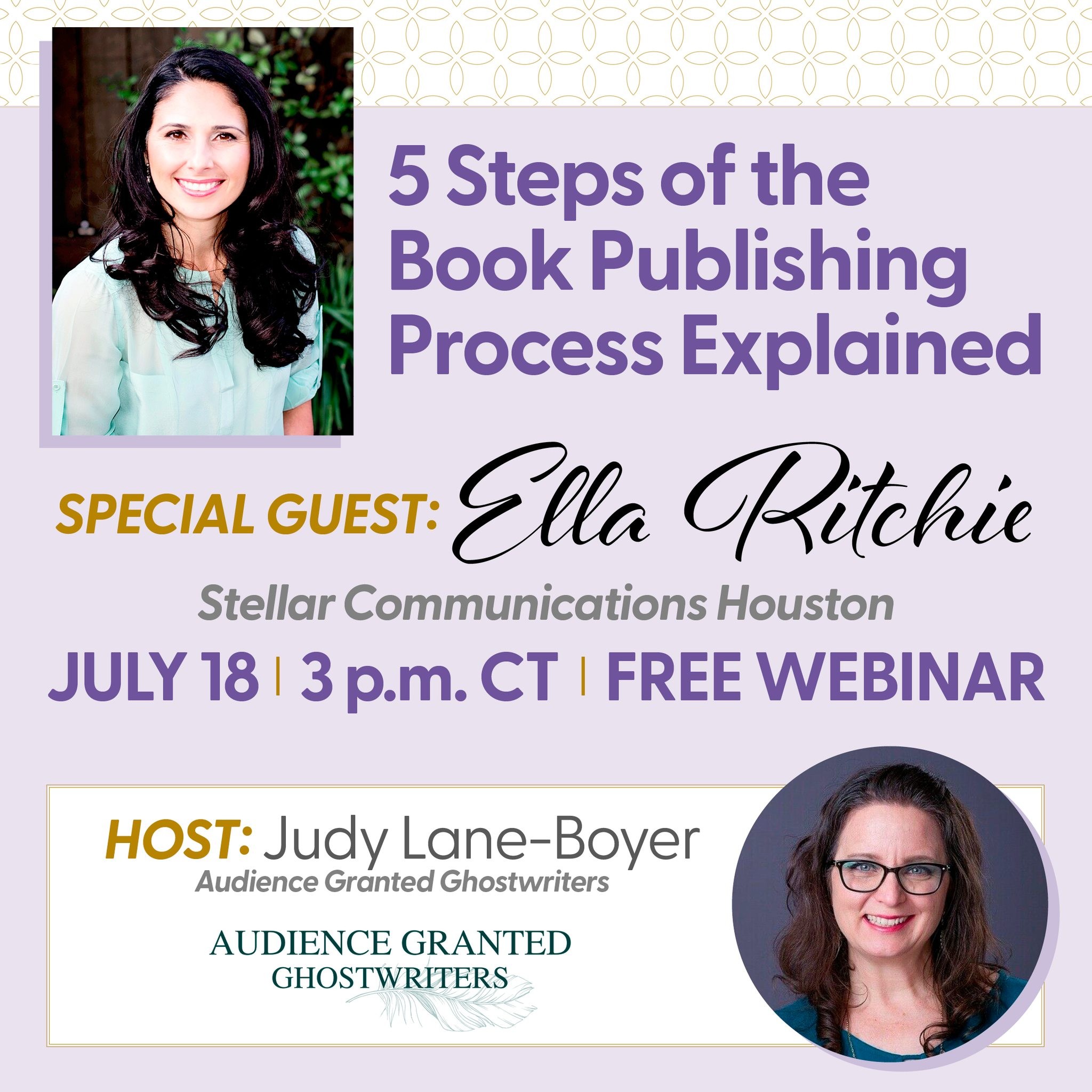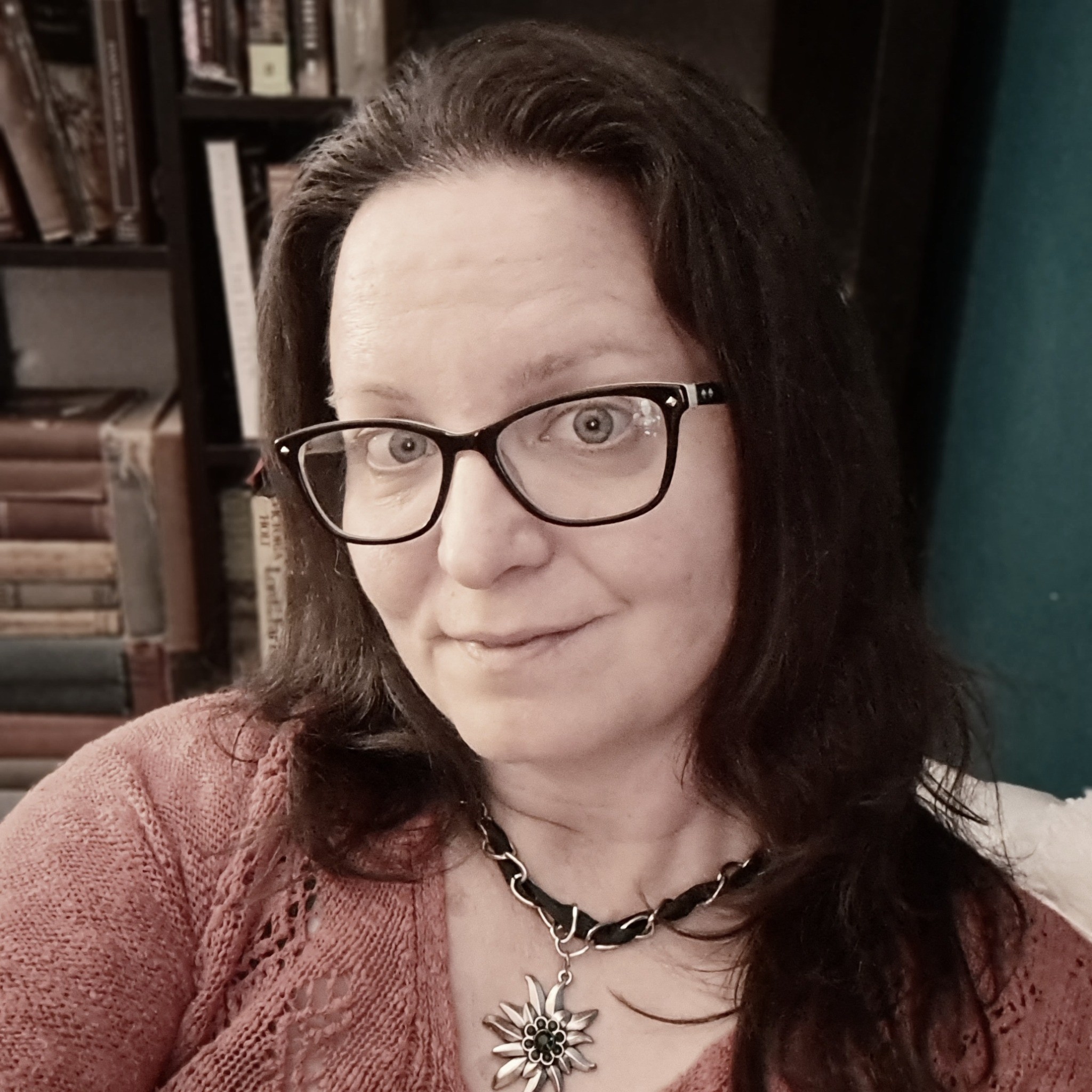We were lucky to catch up with Judy Lane-Boyer recently and have shared our conversation below.
Judy, looking forward to hearing all of your stories today. Parents play a huge role in our development as youngsters and sometimes that impact follows us into adulthood and into our lives and careers. Looking back, what’s something you think you parents did right?
My parents did so many things right. It’s easy when the baggage they left us gets in our way to focus on the negative, but the reality is, at least in my case, that they gave me far more good things than bad.
I will start with my love of reading and language. True, some of what I got is genetic–I said my first word at five months old, used complete sentences by age one, started reading at age four and was reading chapter books by age six–but still, they created an environment where books and reading were prized. They read to us when we were preschoolers. My dad moved from picture books to chapter books even that young with us. Our nightly ritual till we were all in our teens was to gather in the evening to read the Bible and pray as a family, and then afterwards, he would read us a chapter–sometimes two or thre–from whatever book we were going through. Sometimes he chose the book. Sometimes we got to pick. He gave different voices and accents to different characters, and even read several on tape for us, long before Audible. Some he even added background music, too! We went through the Hardy Boys and other young adult series, but we also went through classics–Old Yeller, Tom Sawyer, Ben Hur–and more adult fiction, like Louis L’Amour.
Mom also read to us when we were small, and we saw her almost every day taking her afternoon break with a cup of tea and a book. We never had TV or watched movies. The thing we most eagerly anticipated on the weekends was not Saturday morning cartoons but a trip to the library. Of course, this was after Dad or Mom made breakfast–eggs and bacon or sausage and either biscuits (sometimes with gravy–my favorite!) or pancakes. We’d each get to check out several books. Sometimes we got to watch a film in the library’s children’s section.
All of this had me writing and inventing stories from a young age. In fourth grade, when we got a sheet of paper with lines on one side to write a story, I quickly filled the front, the unlined back side, and then continued on several more sheets of paper. At age thirteen, I wrote a complete novel manuscript.
It’s no wonder that I have worked most of my adult life in professions that require a knowledge and passion for language and communication. I spent 13 years as a Spanish translator working for law enforcement, and I’m now a ghostwriter, writing coach, and developmental editor.
Other things my parents got right–they gave me a firm basis in my faith, not just something they spoke about, but what they lived. They read the Bible to us almost every day, and not just read, but explained. As I said, we also prayed together.
This is one example of how they prioritized family time. I cannot overstate how much I appreciate this, especially from my dad. We had dinner together most nights as a family. Dad had grown up in a chaotic home with a father who was either terribly abusive or absent, a rapist and serial adulterer. Dad vowed that his home would be different. He made it a point to plan time to spend with us kids, individually and together. And while he and Mom went through hard times, he made sure to keep his commitment to her.
Another thing–he and Mom were intentional about being affectionate, even romantic (but not inappropriately so) in front of us. Despite his near phobia of discussing sexual topics (given his past, understandable), he and Mom did their best to be open with us, explain things, and answer questions. I cannot imagine the bravery and resolve that took. While my dating life and relationship history isn’t perfect, I think that their example has kept me from a lot of bad decisions. I always wanted something real and had an intuition for what felt superficial. I attribute my wonderful marriage in large part to that.
Another thing–both Mom and Dad have always been hospitable in the extreme, opening their home and hearts to everyone, especially the marginalized in their social groups. Sometimes, when people come into my home and tell me what an awesome time they had, and I think, “I didn’t really do anything,” I realize that’s because of this tremendous gift my parents gave me. It is second nature to me to help people feel at home in my home.
My parents weren’t perfect. A lot of the emotional baggage they got from their raising got passed along to me and my siblings. Still, when I look at how much they gave us that they didn’t receive themselves, I can only be grateful.

Judy, before we move on to more of these sorts of questions, can you take some time to bring our readers up to speed on you and what you do?
As I mentioned, language and communication have always been just part of who I am. With that came a love of writing, revising, and editing, perfecting and polishing the written word, crafting stories, and choosing just the right words to convey ideas.
However, whenever I looked into writing as a career throughout my early adulthood, there didn’t seem to be much to interest me. Many writing careers centered around things I didn’t care about–technical or copywriting, for example. Because of the strict church I was brought up in, where girls were expected to get married and stay home with children, I hadn’t gone to college, so other professions like journalism, editing, and speech writing were out.
Still, from age 30 on, I’ve spent a lot of time writing in my various jobs. A stint as a legal secretary developed my word processing skills and made my language mechanics, which were already good, even better. As a translator for law enforcement, I mostly listened to audio (live or recorded) and wrote summary translations for investigators. This involved a lot of storytelling and creative writing skills, like choosing the correct word to convey a tone.
Additionally, I began volunteering with a non-profit that was run by non-native English speakers, so I did a lot of the writing for them–everything from writing up the stories of the people we were helping, to donor letters, and more. And finally, I went to college, starting part-time in community college and later moving to a four-year institution. In both, I was in honors degree tracks, which required a lot of writing. Over the course of earning my bachelor’s, I wrote six term papers and an almost 200-page thesis.
Then, when I learned about the tremendous opportunity to write people’s stories for them and earn money, I knew I’d found my calling. After a six-month mentorship with a highly successful ghostwriter, I launched my business.
It is a joy to me to get to know people’s stories, stories that they are passionate about, stories they want to use to impact the lives of others. It humble me that they trust their precious experiences to me to write in a way that captures their voice.
Many people want to write–books, blog posts, or website copy. (Yes, I’ve learned to enjoy even that!) Yet they don’t feel like they have time. Or they don’t know where to start. For some, English is not their first language. In all those cases, though, their amazing stories, their messages of hope and inspiration, deserves to be heard.
And I love capturing all of that for them–in their voices.
In fact, my years of translation have given me an edge in that regard.
One of the highest compliments I’ve received came from a business coach who hired me to rewrite the copy for her website. She’d had four–FOUR–copywriters do it previously. Yet, while all of them did an adequate job, not one captured her personality, her business ethos. It had become such a pain point for her that I could hardly get her to meet with me to explain what she wanted on her site. However, when I sent her the rough draft for the first page, she responded quickly, exclaiming in capital letters, how much she loved my work. It brought, as she said, “tears of joy” to her eyes, and relief.
She’s not the only one. Two recent book clients have said similar things, one an immigrant writing a how-to-thrive guide for new immigrants to the US from Africa, the other a couple writing a memoir about raising a neurodivergent child. They have loved how I craft their words, their stories, into something they can be proud to publish. Another client, a wedding photographer who usually writes her own blog posts to accompany the photos she puts on her site, said something similar after she hired me to write a post for photos she took of a high-profile wedding. The young lady I am coaching as she writes her first novel told me just the other day how encouraged she feels by our meetings, and how much she appreciates the feedback and suggestions I give her.
These are more than just compliments. To me, they are confirmation: I’m doing what I was meant to do.

We often hear about learning lessons – but just as important is unlearning lessons. Have you ever had to unlearn a lesson?
Communication in the face of friction or opposition has been something I’ve had to learn to do differently.
The way I was brought up, one wasn’t allowed to question, especially if you were female. So when someone did something or something happened that you didn’t like, you just took it. My ADHD-induced guilt complex and willingness to give people more chances and more time played a part, too. After all, I screwed up a lot, struggled with being organized and on-time, etc. I wanted people to be patient with ME!
Unfortunately, this created a pattern of behavior in me that waffled from pushing down my feelings and having them come out in passive-aggression to exploding at times when I just couldn’t take it anymore.
Not healthy. Not in your personal, social, or business life.
So I’ve had to learn to reframe. Both therapy and coaching have helped me. Learning to confront people without losing my cool was hard, and I’m sure I didn’t always do it the right way, especially at first. It was easy for me to feel browbeaten or be too agressive.
Healthy relationships are important to me, though, so I kept at it.
I had to learn to set appropriate boundaries, not as a way to punish people for behavior I didn’t like, but to help me be my best self so that I can be a better friend, a better service provider, a better spouse.
I’ve learned to protect my time and not take offense when people protect theirs.
A great example happened recently. A client paid a down payment for me to re-work on an exiting manuscript. We had 2-3 planning sessions, but from the beginning, she was not very responsive. I sent her a proposed outline to rework the manuscript and asked her to schedule a meeting to discuss it once she had time to go over it.
Crickets.
After a month of sending polite texts, emails, and voice messages, and getting apology after apology but no action, I wrote a letter, using skills I’ve learned from a business coach. It was along the lines of:
I know you’re busy, and that’s totally fine. If you want to put the project on hold, I completely understand. If not, I need X, Y, and Z from you by ___(date)___. If I don’t hear from you by then, I’ll assume you are putting the project on hold for now, and I will be open to taking on additional client work (i.e., not setting aside time for this project).
I got a near panicky response with a suggestion that I change my process and a promise to schedule something soon.
Still waiting. Or rather, I’m not waiting. I’m moving on to other projects.
It’s hard to describe the freedom learning these skills has given me. I don’t have to harbor anger or resentment over someone taking up my time but not doing their part. I don’t have to feel bad that I overreacted or blew up at someone. I’ve done my part to preserve the relationship and made it clear, as kindly as I know how, that the ball is in the other person’s court.
For many of you, this may be your norm. Maybe it’s just a way of communicating you take for granted.
But for someone like me who was raised in an environment where women don’t question but must adapt, swallow their feelings, and tolerate poor behavior, it is life-changing.

Any stories or insights that might help us understand how you’ve built such a strong reputation?
This is still a work in progress, so I’ll answer how I’m BUILDING my reputation in the market.
One word: relationship.
I mentioned on the first question how my parents raised me in a hospitable environment. That’s how I do business, too. Part of the reason I’m good at capturing people’s voices in writing is because it’s important to me to know my client. I WON’T do business with someone who can’t ever pick up the phone and talk to me.
That’s lost me clients–I can think of at least two right now. The most recent was someone who was referred and had her secretary reach out for a quote on editing her book manuscript. I gave her my scheduling link and asked her to get something on the calendar. Not only is “editing” a broad term–there are four different levels of editing in the publishing world, developmental, line, copy, and proofreading–but each of those terms can mean something different to different people. (I talked to a publisher a couple weeks ago who used the term “developmental edit” as almost the opposite meaning from the way I’ve heard most people use it. I need to know exactly what the client has in mind.)
On top of that, I want a feel for the client herself. Editing is a skill, but it’s also an art. I need to have an understanding of the client’s personality and vision.
After several emails from the secretary that did not even acknowledge my request for a meeting but just kept repeating the request for a quote, I let it go.
Does this mindset mean I might get bypassed for an otherwise intriguing project? Probably.
But for the clients who do choose to let me help them, the results are the glowing compliments I mentioned on a previous question. I work hard to develop and maintain relationships, not only with potential, existing, and past clients, but with referral partners as well. Sometimes that looks like a quick text or Christmas card. Other times it’s a, “Hey, let’s grab lunch or coffee.”
It’s a bit of a slow burn to build a reputation this way, but I’m starting to see the kind of results and success that I want.

Contact Info:
- Website: www.audiencegranted.com
- Instagram: audgrant1
- Facebook: https://www.facebook.com/audiencegranted
- Linkedin: https://www.linkedin.com/in/judyelane/
- Youtube: http://www.youtube.com/@AudienceGrantedGhostwriters
Image Credits
Jordan Ashley Photography


